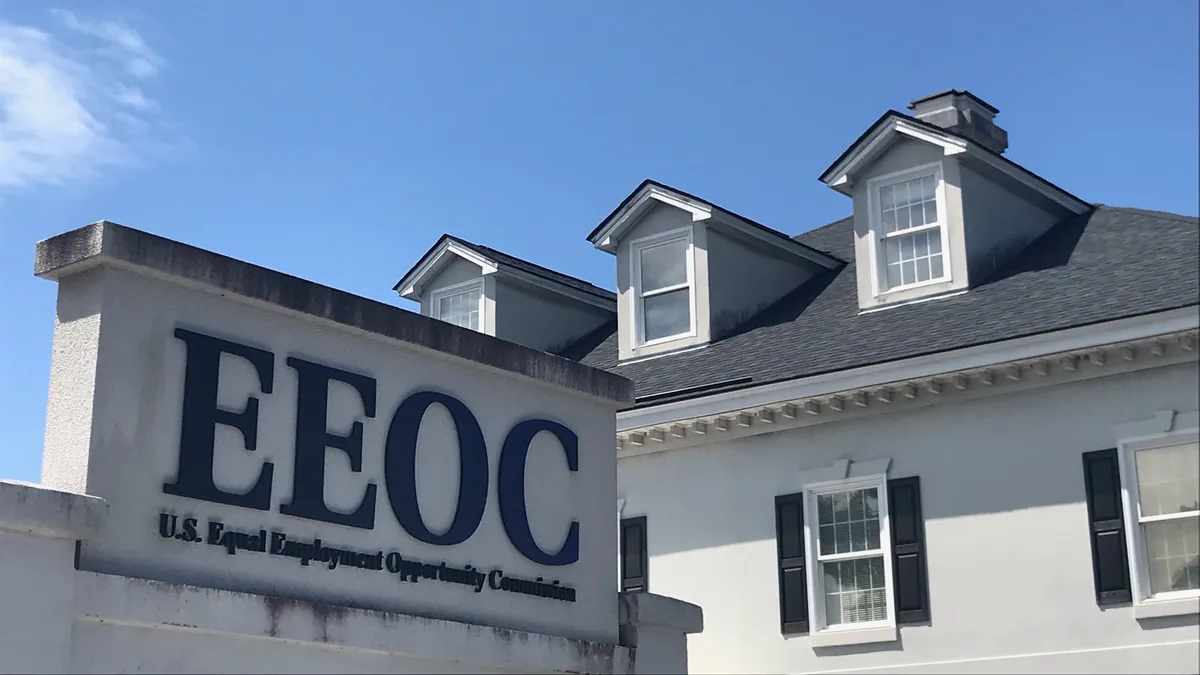Dive Brief:
- Republican lawmakers sent a letter to U.S. Equal Employment Opportunity Commission Chair Charlotte Burrows last week questioning the EEOC’s management of public funds in the wake of a scrapped plan to furlough its workforce for one day.
- Per the letter, sent by Rep. Virginia Foxx, R-N.C., and Rep. Kevin Kiley, R-Calif., the budget shortfall that led to the furlough proposal provides “evidence of significant mismanagement at EEOC.” It goes on to say that the formerly planned furlough was a “reckless and avoidable” response to agency funding issues.
- Foxx and Kiley submitted to EEOC a list of seven requests to produce documentation on items such as the commission’s communications about the proposed furlough with other federal agencies as well as the union representing EEOC employees. The lawmakers gave EEOC a deadline of Sept. 10, 2024, to respond. An EEOC spokesperson confirmed in an email to HR Dive that the agency is formulating a response to the letter.
Dive Insight:
Burrows, in a memo issued in late July, proposed a one-day furlough of EEOC’s entire staff on Aug. 30. The chair cited spending constraints caused by increased costs, and she specifically pointed to expenses such as employee compensation and benefits as a culprit for the budget shortfall that made the proposal necessary.
At the time, the agency told HR Dive that more than 76% of its budget was allocated to compensation and benefits and that it has a daily payroll of $1.3 million. A separate memo by Sheila Clark, EEOC’s deputy chief human capital officer, noted that the agency had previously implemented a hiring freeze, while Burrows’ memo stated that EEOC filled only a handful of critical positions during the current fiscal year.
The furlough never happened, however, as EEOC told HR Dive in August that it had made an aggressive set of financial management decisions to maximize efficiencies.
Burrows, in her July memo, cited the lack of a Congressional increase to the agency’s budget for the 2024 fiscal year, even as the federal government instituted a 5.2% average pay increase for employees across the board. The agency had requested a year-over-year funding increase of more than $26 million, but Congress declined this, instead maintaining EEOC’s $455 million budget from the 2023 fiscal year.
Foxx and Kiley, however, said EEOC failed to take steps to prevent a potential shortfall, such as adjusting for rent, security, contracting and additional hiring costs. Their letter also criticized EEOC’s continued implementation of remote work, which they said “appears to have contributed to a decline in average productivity per employee — leading to [EEOC’s] drive to hire nearly 500 new employees in a single year to help make up for the decreases in productivity and thereby increasing pressure on the annual budget.”
Foxx and other Republican lawmakers have previously written to EEOC as part of their oversight of the Democrat-led agency. This included a 2022 letter from Foxx and Sen. Richard Burr, R-N.C., who criticized EEOC’s general counsel for administratively withdrawing rather than formally closing cases in which a majority of the commission voted not to file a lawsuit, as well as the issuance of the agency’s sexual harassment guidance.













